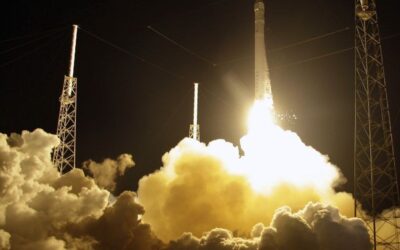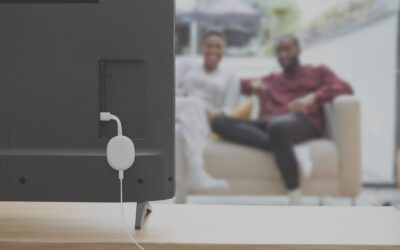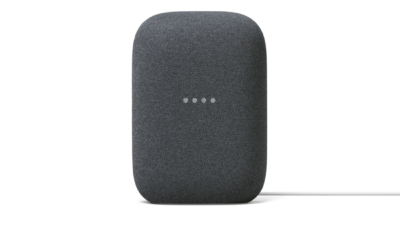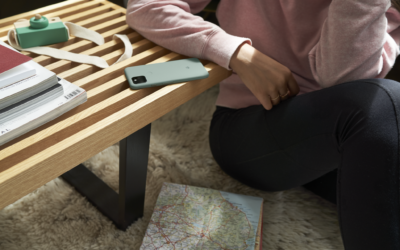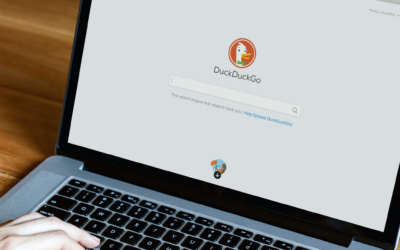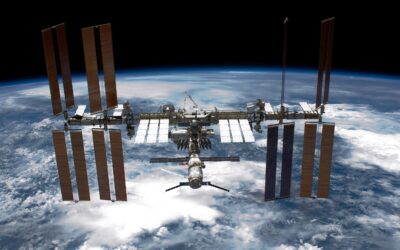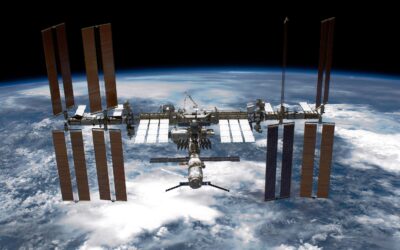Elon Musk’s SpaceX has added a mystery Falcon 9 rocket mission to their record-setting schedule for October.Observers speculate that the rocket may again be a covert launch for the US military or a national security organisation.The surprise mission was revealed in paperwork they must file with US federal authorities to get permission to communicate with their rockets.SpaceX is required to have “special temporary authority” applications with the US Federal Communications Commission for each launch.The firm has a record five launches set for October, according to Teslarati.comThese include three for Musk’s satellite internet project Starlink, a satellite launch for the US military and Crew Dragon’s first astronaut mission to the International Space Station.The Crew Dragon flight will be the first operational flight after the SpaceX’s historic test flight launch in May, its first ever crewed mission.SpaceX has four launches set for November and it has never launched more than three times in a month.Now SpaceX has filed an FCC STA request for a Falcon 9 “Mission 1512”, which is scheduled to launch no earlier than 3 October, according to the report on Teslarati.Observers say that SpaceX has only filed one other similar application before for an unannounced launch.But the 2018 launch was a failure as the “Zuma”satellite, built by Northrop Grumman, was lost when the rocket crashed into the Indian Ocean.SpaceX was cleared of responsibility as the problem was reportedly found to be engineering errors made by Northrop Grumman.
The Independent Articles
Google Chromecast finally gets a menu and remote with Google TV launch
Google has launched a new version of its Chromecast, finally adding a menu and a remote.A new service called Google TV will allow the set-top box not just to work as an accessory for the phone but on its own, too.Google TV looks to unite a variety of different apps, allowing users to see films and TV shows from a host of apps – not just YouTube but Netflix and more traditional channels too – all in one bunch on their home screen.Google has launched a variety of Chromecasts, regularly updating them, but al of them have had the same basic idea. The puck connects to the television and also connects to a phone, allowing people to send video from their device to their television.That is still available on the new Chromecast. But the new tool can be used without a phone at all, with users also able to navigate using a remote.Read moreAs well as being the first debut of the Google TV menu, it is also the first time that the Chromecast has come with a remote.The new Chromecast costs $49 or £59 in the UK and is available to pre-order from the Google Store in the US and UK now. It will be released on 15 October.It will come to other countries later in the year, Google said during its live launch event.It will come in three colours, which Google refers to as Snow, Sky and Sunrise but which might also be called white, light blue and light pink.
Google launches Nest Audio, a new smart speaker focused on sound
Google has revealed its Nest Audio, a smart speaker for the home.The speaker replaces the Google Home, which first arrived in 2016. It has gone through a number of revisions since then, but the update brings a complete redesign and puts in a new shape.The new Nest Audio will sit alongside the much smaller Home Mini, the much larger Home Max, and the Nest Hub and Nest Hub Max, which both have screens.Google’s introduction of the Nest Audio focused on its music quality, and the company claimed that it has “top-of-the-range sound quality”.It also comes wrapped in a soft material, unlike the plastic of the Google Home it replaces. Google said it is made of 70 per cent recycled materials.Read moreThe Nest Audio costs £89 and will be available from 15 October. Unlike other products announced during Google’s “Launch Night In” event, it will not be available for pre-order.It comes in two colours: Chalk and Charcoal, or light and dark grey.Google unveiled the new phones at its “Launch Night In” event, where it also showed a reimagined new Chromecast and its first 5G phones.
Google launches Pixel 5 and Pixel 4a with 5G, its first phones with new network technology
Google has launched new phones, its first ever with 5G.The Pixel 4a with 5G and the more expensive Pixel 5 with 5G both add the faster internet speeds as well as a range of other new upgrades and features.The Pixel 5 starts at £599 and comes in black and “Sorta Sage”. The Pixel 4a with 5G starts at £499 and only comes in black.Both phones open for pre-orders today and will go on sale on 15 October. That is the same as the other devices – a new Nest Audio smart speaker and an updated and reimagined Chromecast – which were launched at the same event.In its introduction to the new phones, Google stressed that while the extra speed of 5G is helpful, the company focused on how that could provide extra features to users.Read moreThose included better performance in its Stadia streaming gaming service, the ability to share screens and watch videos together using its Google Duo video calling service, and a smart downloads tool that will queue up YouTube videos in the background so that they can be watched even when there is no service.But the company did add new upgrades for the Pixel 5, including water resistance, 8GB of RAM and a reverse wireless charging feature that means it can charge up other phones or accessories such as the Pixel Buds.It takes largely the same design as the existing Pixel 4 but puts it in a new aluminium body. It also gets rid of the “forehead” that housed the camera at the top of the display, and instead swaps it for a “holepunch” where only the camera’s lens intrudes into the screen.That display is a 6-inch OLED screen, which comes at full HD resolution.The Pixel 5 and 5G Pixel 4a have the same camera systems. Both get a new ultra-wide lens in the back, like the top-end iPhones, and add extra software features for photos such as the ability to combine its Night Sight mode for seeing in the dark with the portrait mode.During the announcement, Google also announced new software features called “Extreme Battery Saver” and “Hold For Me”. The former allows a user to choose which apps should stay open to keep the battery alive, and Google claimed it can add an extra 48 hours of charge; the latter uses artificial intelligence to stay on hold and alert its owner when someone comes to the phone.Both of those features will come to older Pixel phones soon, Google said.
Physicists prove time travel is ‘mathematically possible’
Scientists in Australia claim to have proved that time travel is theoretically possible after solving a logical paradox.Physicists from the University of Queensland used mathematical modelling to reconcile Einstein’s theory of general relativity with classical dynamics. The clash between these two systems is behind a famous flaw with time travel, known as the grandfather paradox.Einstein’s theory allows for the possibility of a person using a time loop to travel back in time in order to kill their grandfather. However, classical dynamics dictates that the sequence of events following the grandfather’s death would culminate in the time traveller not existing in the first place. “As physicists, we want to understand the universe’s most basic, underlying laws and for years I’ve puzzled on how the science of dynamics can square with Einstein’s predictions,” said Germain Tobar, who led the research. “Is time travel mathematically possible?”For their calculations, Mr Tobar and Dr Costa used the coronavirus pandemic as a model for working out whether the two theories could co-exist.Read moreThey imagined a time traveller attempting to go back and prevent patient zero from being infected with Covid-19.Einstein’s theory allows for the possibility of time travel but the science of dynamics would mean that the fundamental sequence of events could not be interfered with.This is because if the time traveller succeeded in preventing the virus from spreading, then it would eliminate their initial motivation for them to travel back in time.“In the coronavirus patient zero example, you might try and stop patient zero from becoming infected, but in doing so you would catch the virus and become patient zero, or someone else would,” Mr Tobar said.”No matter what you did, the salient events would just recalibrate around you. This would mean that – no matter your actions – the pandemic would occur, giving your younger self the motivation to go back and stop it. Try as you might to create a paradox, the events will always adjust themselves to avoid any inconsistency.“The range of mathematical processes we discovered show that time travel with free will is logically possible in our universe without any paradox.”University of Queensland physicist Dr Fabio Costa, who supervised the research, added: “The maths checks out – and the results are the stuff of science fiction.”A paper detailing the research was published in the journal Classical and Quantum Gravity.
Apple considers lasers for future iPhones to detect contaminated air
Apple is working on a new type of phone sensor that uses lasers to monitor dangerous particulates in the air, according to a patent filing.The ‘Particulate matter sensors for portable electronic devices’ patent describes how an array of lasers could detect the presence of poisonous gas, pollen and other potentially harmful elements in the air surrounding a device.The technology could potentially find its way into next-generation iPhones or a future Apple Watch, though the Cupertino company does not comment on unreleased products.The patent describes how a three-laser set up would be able to determine the speed and direction of air flow without the need for bulky fans that are typically used in these types of sensors.“These three beams can converge at a measurement location or, in some embodiments, can converge at different locations to perform independent measurements of particulate matter flowing with the gas,” the patent states.Watch moreWhile the primary use case for the sensor is with smartphones and smart watches, the patent also mentions that it could work with a variety of other computers and wearables.In other implementations, [the] electronic device may be a laptop computer, a tablet computer, a somewhat smaller portable device such as a wristwatch device, pendant device, or other wearable or miniature device, a media player, a gaming device, a navigation device, a fitness device, or other electronic equipment,” according to the patent, which was filed with the US Patent and Trademark Office in July but only published on Tuesday.A companion app would then be able to update the user with air quality reports and alert them if there is cause for concern.
DuckDuckGo attacks Google's Android auction for stopping users easily making it their default search engine
The commission said that Google had “obstructed the development of competing mobile operating systems which could have provided a platform for rival search engines to gain traffic”.Google then offered an auction to other companies, allowing them to pay for inclusion on Android.“The choice screen will always show a maximum of 4 providers, including Google. The auction winners, and Google, will be ordered randomly in the choice screen on a per device basis,” Google said.Read more“In the event of a tie, Google will allocate the slots randomly among the tied bidders on a per device basis.”The options change based on each EU country. In the United Kingdom, the options are between Bing, info.com, and PrivacyWall. In Slovenia, by contrast, the options are either Ecosia, GMX, or info.com.Across all European countries, PrivacyWall is offered 22 times, GMX is offered 16 times, Bing is offered 13 times, Yandex is offered eight times, as is DuckDuckGo. Info.com, by contrast, is offered in all 31 countries.DuckDuckGo claims that the result of this auction means that “only the highest bidders are on the menu”, incentivising profit over privacy so they can afford to place higher bids.The company also claims that DuckDuckGo was the second most-selected search engine, after Google, but was priced out of contention.“Despite DuckDuckGo being robustly profitable since 2014, we have been priced out of this auction because we choose to not maximize our profits by exploiting our users”, the company said.“In practical terms, this means our commitment to privacy and a cleaner search experience translates into less money per search. This means we must bid less relative to other, profit-maximizing companies.”The company says that as a result of Google’s auction, search engines are incentivised to “be worse on privacy, to increase ads, and to not donate to good causes, because, if they do those things, then they could afford to bid higher.”Instead, DuckDuckGo proposes that the European Commission take action to remove the auction and allow alternative search engines with the most market share to be shown on the setup screen in a random order, with the remaining search engines available by scrolling.The Independent has reached out to Google and the European Commission for comment.
International Space Station leak: Nasa says it has found source of mysterious problem on board ISS
Astronauts Chris Cassidy, Anatoly Ivanishin and Ivan Vagner were instructed to move into the Russian segment of the ISS in order to collect data at a range of locations.Previous checks had been made in the US, European, and Japanese modules of the space station.“One by one, the crew closed hatches between Zvezda’s aft and forward sections and Zvezda’s passageways to the Pirs Docking Compartment and the Poisk module while using an ultrasonic leak detector to collect data”, the space agency write in a blog post.“Throughout the night, pressure measurements were taken by US and Russian specialists to try to isolate the source of the leak. At the completion of the overnight checks, the crew opened hatches once again between the US and Russian segments and resumed regular activities.”Read moreNasa has repeatedly said that the leak, which it has been investigating for weeks, poses no immediate danger to the crew.At the current rate of leakage, it only presents a slight deviation to the crew’s schedule.“Currently the search is underway to precisely locate the leak. With that, the general atmosphere pressure decrease rates remain at 1 mm per 8 hours”, the Russian space agency Roscosmos tweeted.Nasa has previously said that the station can be repressurised using nitrogen tanks.In the coming months, many cargo spacecrafts are scheduled to arrive at the station in the beginning of October.It “marks the beginning of a very busy vehicle traffic month on ISS,” Greg Dorth, manager of the ISS Program External Integration Office at Nasa, said in a previous statement.
Quantum computing breakthrough could help bring technology into the real world, researchers say
Scientists have hailed a new quantum computing breakthrough that could bring the revolutionary technology into the real world.The discovery could fundamentally change how quantum computers are able to measure energy quanta, which allow the entirely new kind of computers to work.Quantum computing has long been promised as a way of carrying out computing tasks in vastly quicker ways, potentially changing everything from health research to security.But they have proven difficult to make practically, not yet fulfilling the promise that their proponents have claimed.The new breakthrough – described in research newly published in Nature – focuses on a new kind of detector known as a bolometer. That measures the energy of incoming radiation by measuring how much it heats up that detector.For a quantum computer to work, it must be able to measure the energy state of the qubits that it is made up of.Read moreAt the moment, quantum computers generally do so by measuring the voltage induced by the qubit. But that comes with a host of problems, including the need for extensive circuity that could make the computers difficult to scale up and consume power, as well as potentially introducing errors.By using bolometers, the scientists hope to overcome all of these problems. But until now they have not proven fast or sensitive enough to be actually used practically.Now the paper describes a new kind of bolometer that could theoretically be included in quantum computers and help bring them into practical use.’Bolometers are now entering the field of quantum technology and perhaps their first application could be in reading out the quantum information from qubits. The bolometer speed and accuracy seems now right for it,’ says Mikko Möttönen, the researcher who led the team who made the breakthrough.Previous bolometers have been made out of a gold-palladium alloy that overcome the noise problems, but was too slow to actually do the work of measuring qubits. Instead, the new research saw engineers create them out of graphene, vastly speeding them up so they are as fast as the current technology.“Changing to graphene increased the detector speed by 100 times, while the noise level remained the same. After these initial results, there is still a lot of optimisation we can do to make the device even better,” said Pertti Hakonen, who leads a group at Aalto University that has expertise in making graphene-based devices.
Space station air leak forces middle-of-night crew wakeup
At a briefing on 28 September about the upcoming Northrop Grumman NG-14 Cygnus cargo mission, Nasa said that its investigation into the leak continues.It has already been searching for the cause of the leak for several weeks.“As of this morning, there was no clear indication of where the leak is,” said Greg Dorth, manager of the ISS Program External Integration Office at Nasa, said. “The teams are still looking at the data and evaluating it.”The crew of the ISS stayed in the Zvezda service module over the weekend, while other modules were opened and closed in order to identify which one had the leak, but to no avail.The module acted as the living quarters when permanent habitation of the space station began in 2000.Read moreThe leak poses no risk to either the station or the people living on board, as the station can be repressurised using nitrogen tanks.Nasa astronaut Chris Cassidy reemphasised that point in a series of tweets before going into isolation in Zvezda.“Strangely the data did not point us to any particular location. Yesterday and today, Anatoly and I have been checking all of the window seals (not #navyseals) for any indication of a leak using an ultrasonic leak detector”, he tweeted on 24 September. “So far no luck finding the source, but it looks like we will try again with the module isolation this weekend. No harm or risk to us as the crew, but it is important to find the leak we are not wasting valuable air.”In the coming months, many cargo spacecrafts are scheduled to arrive at the station in the beginning of October.The NG-14 Cygnus cargo is expected to arrive at the station on 4 October; this “marks the beginning of a very busy vehicle traffic month on ISS,” Dorth said.By the end of October, the crew of the ISS will reach seven astronauts following docking with the a new Soyuz spacecraft and a SpaceX Crew Dragon.

